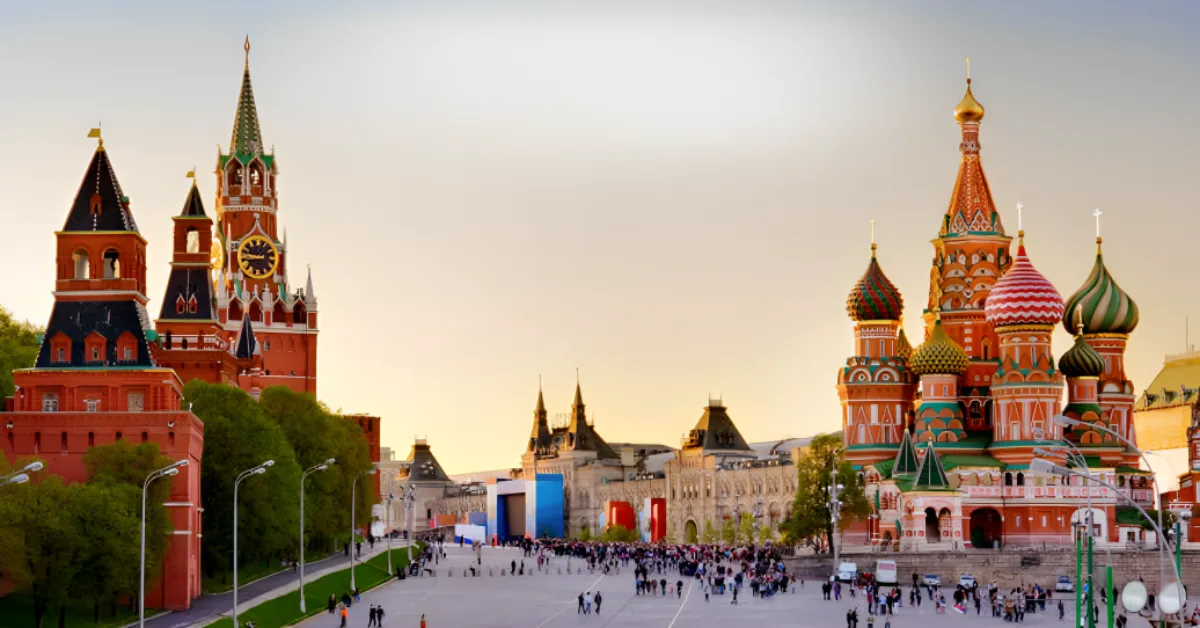The decision to study medicine in a foreign country is a significant one, laden with numerous challenges and opportunities. For Indian students, Russia has undeniably emerged as a popular destination for MBBS in Abroad due to its world-class universities and affordable tuition fees.
Russian Medical Universities are renowned for their rigorous academic programs, experienced faculty and cutting-edge medical infrastructure. Indian medical aspirants are drawn to these universities due to their high academic standards. However, beyond the allure of excellent education and cost-effective tuition fees, Indian students embarking on this journey also face the unique challenge of cultural adaptation.
Here are a few points to explore the experiences and challenges faced by Indian students in Russian medical universities and how they navigate the path of cultural adaptation:
The Attraction of Russian Medical Universities
Russian medical universities have garnered a reputation for their high academic standards, experienced faculty, and advanced medical infrastructure. This, coupled with relatively affordable tuition fees compared to Western countries, has made Russia an appealing choice for many international students, especially Indians aspiring to become doctors.
One of the primary attractions of studying medicine in Russia is the six-year medical program. Students can enroll directly after completing their higher secondary education, eliminating the need for a pre-medical degree. This streamlined approach not only saves time but also reduces the financial burden associated with prolonged education.
Initial Challenges: Language Barrier
Upon arriving in Russia, the language barrier is often the first and most formidable challenge for Indian students. The medium of instruction in Russian medical universities is primarily Russian. While some universities offer medical programs in English, these are relatively limited in number. As a result, many Indian students find themselves immersed in a linguistic and cultural environment that is vastly different from their own.
Adapting to a new language can be a daunting task, and it requires perseverance and dedication. Many Indian students opt to learn the Russian language alongside their medical studies. Language classes, both on and off-campus, are readily available. Additionally, language apps and online resources have become invaluable tools for Indian students navigating the Russian linguistic landscape.
Cultural Adaptation: Overcoming Stereotypes
Cultural adaptation encompasses much more than language proficiency. Indian students studying in Russian medical universities must also learn to navigate the subtleties of Russian culture and society. They encounter a wide range of stereotypes and misconceptions about India and Indian people, some of which can be challenging to overcome.
One common stereotype is the notion that all Indians are vegetarians. In a country where meat is a staple of the diet, Indian students may find it challenging to adhere to their dietary preferences. While many Russian cities now have Indian restaurants and grocery stores, adapting to the local cuisine remains a learning curve.
Additionally, Indian students studying MBBS in Russia may face stereotypes related to religion and spirituality. Russia has a predominantly Christian population, and many Russian people may be curious about Indian religions, such as Hinduism and Sikhism. This can lead to misunderstandings and cultural differences that Indian students need to navigate.
Maintaining Cultural Identity
As Indian students immerse themselves in a foreign culture, there is often a delicate balance to strike between adaptation and maintaining their cultural identity. The preservation of one’s cultural roots and values can be a source of strength and resilience during challenging times.
Indian students often form tight-knit communities in Russia. These communities provide a sense of belonging, where they can share experiences, celebrate festivals, and cook traditional Indian meals together. Maintaining connections to one’s cultural heritage, whether through food, clothing, or festivals, can serve as a comforting anchor in a sea of change.
Support Systems: Family and Friends
Family and friends play a crucial role in the cultural adaptation process. The emotional support from loved ones back in India can help Indian students cope with the challenges they face in a foreign land. Regular communication through phone calls, video chats, and messaging apps keeps them connected with their roots and provides a sense of comfort.
Moreover, family members who have also pursued education abroad can offer invaluable insights and advice. These shared experiences can foster a sense of camaraderie and mutual support.
Experiencing Russian Culture
Cultural adaptation is a two-way street, and Indian students in Russia have the opportunity to experience and appreciate Russian culture. Russian festivals, traditions, and customs provide a rich tapestry of experiences that can be eye-opening and enriching.
One such experience is the celebration of New Year in Russia. New Year’s Eve is a significant holiday in Russia, filled with festivities and fireworks. Indian students often participate in these celebrations, embracing a new cultural experience while celebrating with their Russian peers.
Russian cuisine, with its diverse range of dishes, can also be a delightful exploration for Indian students. From borscht to blini, experiencing Russian food is an adventure in itself. Many Indian students develop a taste for traditional Russian dishes and even learn to prepare them.
Navigating the Education System
Cultural adaptation also extends to the academic environment. Indian students must adjust to the teaching methods, examination systems, and academic expectations of Russian universities. The Russian medical education system places a strong emphasis on practical training, which can be quite different from the more theory-based approach in India.
Time management and study techniques can vary significantly from what Indian students are accustomed to. It is essential to adapt to these differences and seek support from professors and peers when necessary. Many universities offer academic support services to help international students bridge the gap.
Overcoming Homesickness
Homesickness is a common emotion experienced by Indian students studying MBBS in Russia. The distance from home, coupled with cultural differences and a new environment, can lead to feelings of loneliness and longing for one’s homeland.
To combat homesickness, Indian students often engage in activities that remind them of home, such as cooking Indian meals, celebrating Indian festivals, and forming close-knit circles of friends who share similar experiences. These connections can provide emotional support and a sense of belonging.
Conclusion
Studying medicine in Russia is a life-altering experience for Indian students. It offers the opportunity to receive a world-class education, develop cross-cultural skills, and create lifelong memories. While cultural adaptation can present its fair share of challenges, Indian students often emerge from this journey with a profound sense of personal growth and an enhanced understanding of the world.
As they navigate language barriers, cultural stereotypes, and academic adjustments, Indian students in Russian medical universities discover the strength of their own resilience. They learn to strike a balance between cultural adaptation and maintaining their identity, bridging the gap between their homeland and their new home.
Lastly, the cultural adaptation journey is as much about self-discovery as it is about embracing a new culture. Indian students in Russian medical universities become global citizens, equipped with a unique blend of experiences that shape them into well-rounded individuals, prepared to serve as doctors and ambassadors of cultural understanding in an increasingly interconnected world.
▶Read More: Decoding The Expenses: Is Pursuing MBBS In Russia A More Economical Option?




